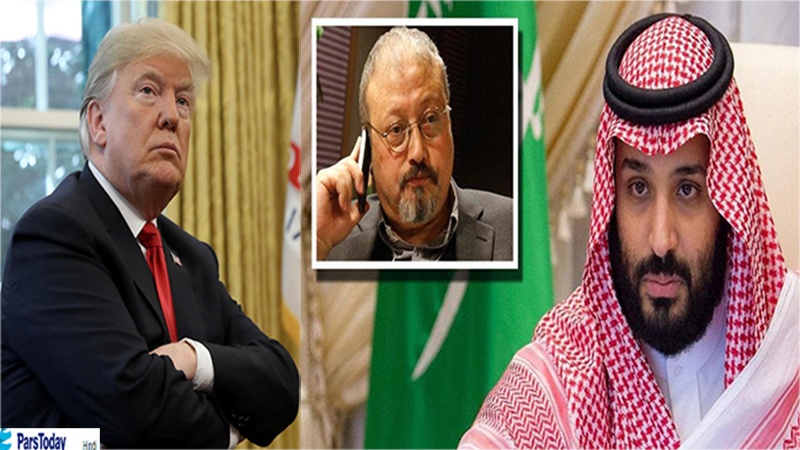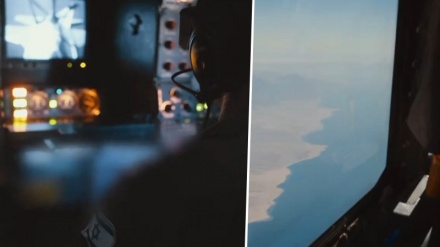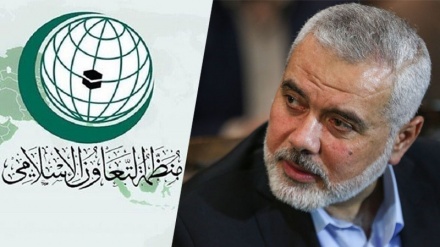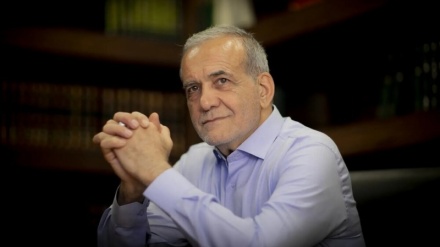No murder mystery
A top priority for the US administration, as with many recent administrations, is the selling of massive amounts of US arms to Saudi Arabia.
That says why President Donald Trump will never get to the bottom of the murder of Saudi journalist Jamal Khashoggi in the Saudi consulate in Istanbul.
He first claimed he is determined to tackle this matter at the “highest levels.” Now Trump is walking back the issue, insisting that it isn’t worth it for the US to imperil $110 billion in arms sales to Saudi Arabia over a single journalist. Trump says it wouldn’t be acceptable to lose the $110 billion deal, adding that the journalist’s disappearance took place in Turkey, and he’s not a United States citizen.
Trump, as with many recent presidents, has prioritized the relationship between Saudi Arabia and the United States over that of the murder case. He has even specifically warned against upsetting Saudi leaders as it could hurt the US monetarily. According to a tweet this week, Trump said, “I don’t like stopping massive amounts of money that’s being poured into our country.” He added, “they are spending $110b on military equipment and on things that create jobs for this country.”
However, this is not something of a surprise.
The arms deal is simply too important to US arms companies, and any serious attempt to punish the Saudis for the killing of Khashoggi is going to boil down to a fight over the arms deal. After all, this is the same autocratic regime that has been murdering thousands of Yemeni people since 2015 and the US government has done nothing to stop the conflict, much less stop its arms supply or re-fueling Saudi aircraft mid-air.
Saudi Arabia is no different from the other authoritarian, violent, and despotic regimes that have dominated the region since the dissolution of the Ottoman Empire. Saudi Arabia is a harsh place, where politically-motivated assassinations and unsavory governing practices are as common as the oil flowing underneath its sands.
The relationship between the US and Saudi Arabia is not rooted in common beliefs, shared values and ethics. It is rooted in identical foreign policy interests to dominate the region and protect the usurper regime of Israel. Such ties are the reason why Yemen and Syria are in turmoil. They are also the reason why Daesh and Al-Qaeda, the US-Saudi foot soldiers, are still present throughout the region.
Saudi Arabia is not the answer to the region’s many problems, as Trump would like to suggest. It is in fact the root cause of all regional problems. The despotic regime has taken maximum advantage of America’s greed for controlling crude market and a desire for a long-term regional partner in crime in order to press its own Takfiri-Wahhabi agenda in the region.
This agenda is centered on the regime’s propaganda against Iran and also the Saudis’ absolute quest for hegemony. The United States, having interest in the fault-lines of the Middle East, has frequently chosen to wade into Arab conflicts on Saudi Arabia’s side.
Saudi Arabia’s indiscriminate bombing campaign in Yemen, its embargo on Qatar and its export of Wahhabi ideology are not exactly helpful in assuring the US security. Many of those who carried out terror attacks in the US were from Saudi Arabia. Riyadh’s war on Yemen, and Washington’s logistical assistance to the Saudi Air Force in particular, has been especially devastating to the people of that destitute country and America’s reputation among the Yemeni population. This is the case while providing more operating space for the very transnational terrorist groups the US and Saudi Arabia claim to combat in the region.
Khashoggi's story now displays pretty well that the Saudi regime is not concerned about women’s rights, press freedom, due process, political pluralism, and individual freedom, but focused on perpetuating its control and subjugating its smaller Persian Gulf neighbors into vassal states. Saudi Arabia has never been a helpful partner in ensuring regional security and peace. Saudi and certain Persian Gulf Arab states’ money has been absolutely essential in creating and arming the terrorist groups of Daesh and Al-Qaeda.
In the prevailing environment, it is silly to assume that Trump will ever upend the terms of the decades-long alliance between the United States and Saudi Arabia. The US politicians, media figures and foreign policy elites - even those who have fawned over the authoritarian Saudi Crown Prince Mohammad bin Salman – will never criticize the continuation of the US-Saudi alliance. Quite the opposite, the US will continue to give the Saudis a blank check, politically and militarily as long as it can last.
In between, who cares in Washington if the Saudis kidnapped, tortured and assassinated Khashoggi inside their consulate in Istanbul? Saudi Ambassador Khalid Bin Salman has told the US that the consulate cannot provide video footage of the consulate because they only have livestreaming, not recorded video! Again, who cares if this is the only consulate in the world that doesn’t tape - and didn’t tape its own nefarious activity.
Therefore, don’t expect the White House to rush to judgment. Because all of this and more have already passed the smell test in Washington. This particular murder case will never call the relationship between Saudi Arabia and the United States into fundamental question because Trump says jobs would be at risk if arms sales to the country were halted.
Meanwhile, Turkish media have quoted officials as saying that Saudi Arabia is behind the assassination of Saudi journalist Jamal Khashoggi in the Saudi consulate in Istanbul, and that the order to murder him came from the “highest” levels of the Saudi royal court.
On top of this, Turkish officials have named 15 Saudi men that they have identified as “operatives” involved in the assassination of Khashoggi. The murder group included a Saudi Special Forces member, two royal guards, and a chief in the internal security agency. Of course, Saudi officials still deny that anything at all happened to Khashoggi, claiming he entered the consulate on October 2 and left unharmed. Turkish officials, however, don’t think so. According to CCTV cameras, phone call records by the CIA and confidential intelligence, he was killed. His body has not been found, there has been no sign of him since this visit, and this is in no way a murder mystery. Turkish officials have concluded that the order to assassinate Khashoggi came from the highest levels of the Saudi regime. US President Donald Trump has confirmed that he has talked to officials at the highest levels of the Saudi government as well about the matter.
Khshoggi was last seen at 1:14 p.m. local time as he entered the Saudi consulate. Turkish officials, talking to Western media, have described the operation as "quick and complex," and that Khashoggi was killed within two hours of his arrival at the Saudi consulate. The agents "dismembered his body with a bone saw they brought for the purpose. The Turkish officials told the media that “It's like ‘Pulp Fiction’.”
Turkish officials have repeatedly said that Khashoggi has been killed. A friend of the journalist, Turan Kislakci, who is also the head of the Turkish-Arab Media Association, told the Western media that Turkish officials called him and "offered their condolences and told us to be ready for a funeral".
Turkey was so easily able to identify this group, and that they arrived in such a conspicuous manner suggests that the Saudis did little to cover their actions, and may even have figured being implicated would intimidate other dissidents. Closed-circuit television footage, flight trackers, intercepted communications and even rumors of a bone saw can easily help serve pieces of this puzzle. The Washington Post - for which Khashoggi wrote critical columns – says the US intelligence intercepted communications of Saudi officials discussing a plan to capture the journalist. The Post says the Saudis wanted to lure Khashoggi back to Saudi Arabia and lay hands on him there.
On the other hand, Trump claims he wants the US to get to the bottom of the incident! He told reporters that the US is “demanding everything” and considers the matter a very serious situation, adding the US is working closely with Turkey. Trump is clearly doubling down on his push for answers on the matter. He’s not the only one, with Congressional leaders that usually side with Saudi Arabia on all things even starting to ask questions. In that case, the next best move by Washington is to ask the CIA to release their records on phone calls before the murder happened. Yes, they always keep phone call records of everyone up until five years.
Republican US Senator Lindsey Graham spoke to reporters Wednesday, October 10, reporting that it would be a “game changer” if the Saudis had in any way mistreated Khashoggi. Since early indications are that the Saudis had killed and chopped him into bits, that’s going to be tough for Graham to back away from if this turns out to be the case, which, indeed, is the case. Because Senator Graham and Senator James Inhofe both have warned there would be “hell to pay” if the Saudis were behind the journalist’s disappearance. It seems that’s an even safer bet, and while Graham didn’t want to elaborate on what that meant, he did say he thinks the Saudis “know what it means”.
All things considered, and as maintained by Turkish officials, "The Saudis are not cooperating fully with the investigation. They are not open to cooperating." In addition, Saudi authorities have asked Turkish authorities to postpone the search of their consulate in Istanbul. Concerns over Khashoggi’s disappearance have nothing to do with international politics or the geopolitics of the Middle East. For that reason and no other, this particular murder case should prompt calls for investigations from around the world, particularly from the United Nations.
To that end, the Saudi Wahhabi regime’s staunchest Western allies, including the United States, where Khashoggi had applied for permanent residency, are equally expected to press Saudi Arabia to come clean and refrain from double standards. By simply being in touch with the "highest levels" of the Saudi regime about Khashoggi's case and/or expressing concerns about his murder, as President Trump would like to suggest, the Saudi regime won’t be pressed enough to reveal more about the murder, much less be held to account in the court of justice.
The Saudi regime might have been able to silence Khashoggi, but it has miscalculated the global impact his murder would have. Under these circumstances and international law, the autocratic regime should never be allowed to escape international justice or else we should wait for more such crimes. It is now the international community's turn to show its choice.
(Courtesy of FNA)
EA



